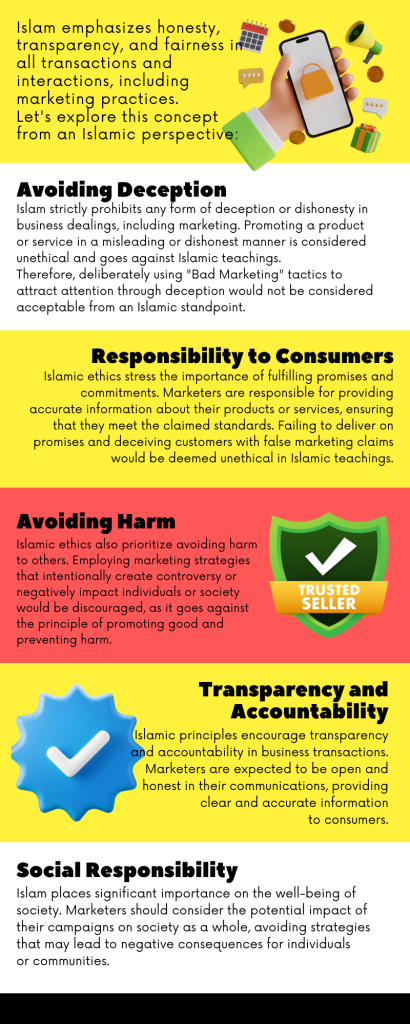“Bad Marketing is Good Marketing”: This concept proposes that marketing efforts that are unconventional, controversial, or even deemed as failures can still yield positive outcomes such as increased brand visibility, customer engagement, or buzz around a product or service. It implies that any form of attention, even negative attention, can be beneficial in drawing interest to a brand or product.
However, it’s important to recognize that the phrase is not promoting unethical or deceptive marketing practices. Responsible marketing should prioritize delivering on promises, being transparent with consumers, and ensuring that products or services meet expectations. The phrase should be viewed as a discussion point rather than a universal marketing strategy, as the potential benefits of such controversial approaches must be weighed against potential risks and ethical considerations.
From an Islamic or Syariah perspective, the concept of “Bad Marketing is Good Marketing” needs to be evaluated within the framework of ethical and moral principles outlined in Islamic teachings.

In conclusion, the concept of “Bad Marketing is Good Marketing” would not align with Islamic ethics. Instead, marketers are encouraged to adopt ethical marketing practices that promote honesty, transparency, fairness, and social responsibility. By adhering to these principles, businesses can build trust with consumers and contribute positively to society while upholding their Islamic values.

